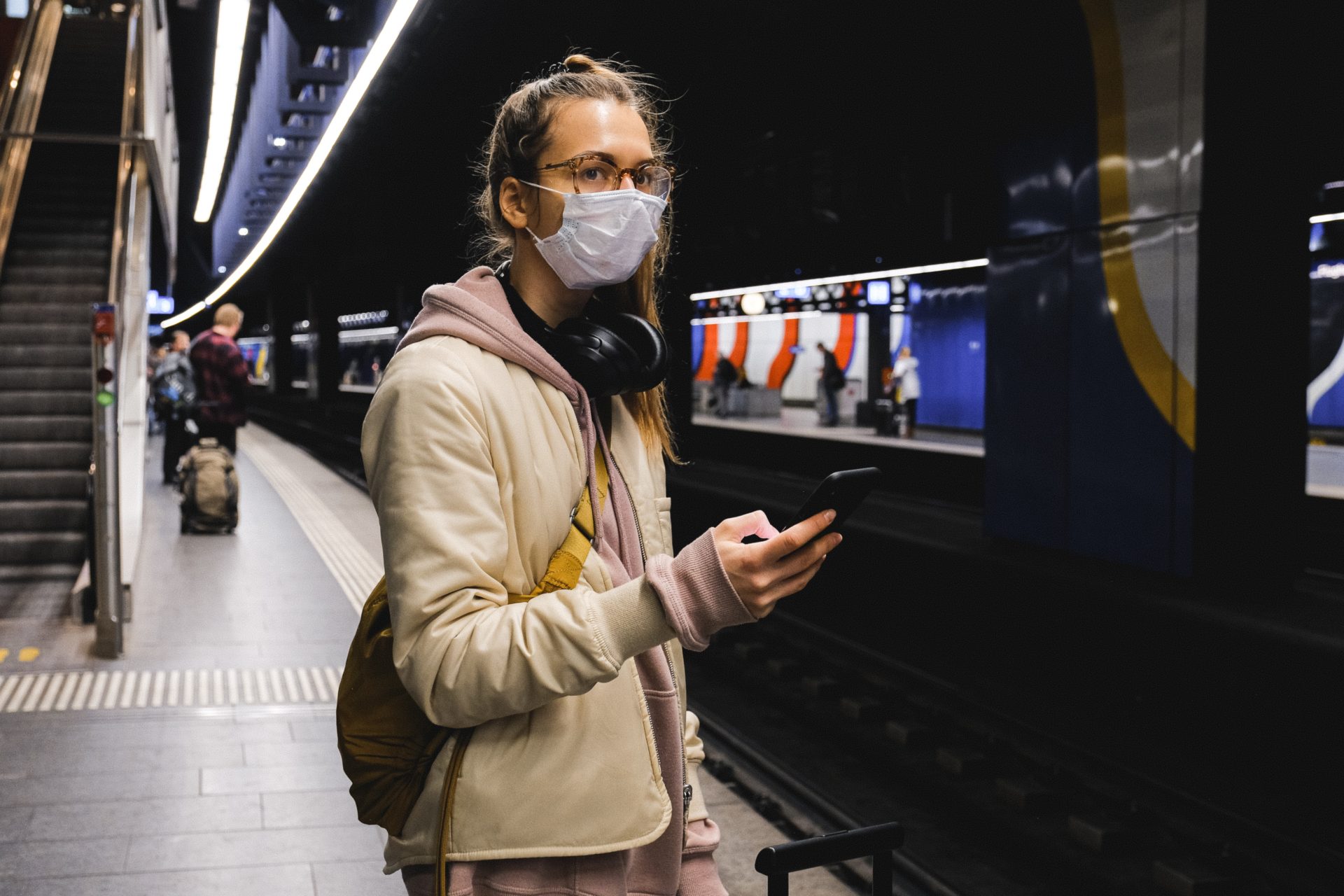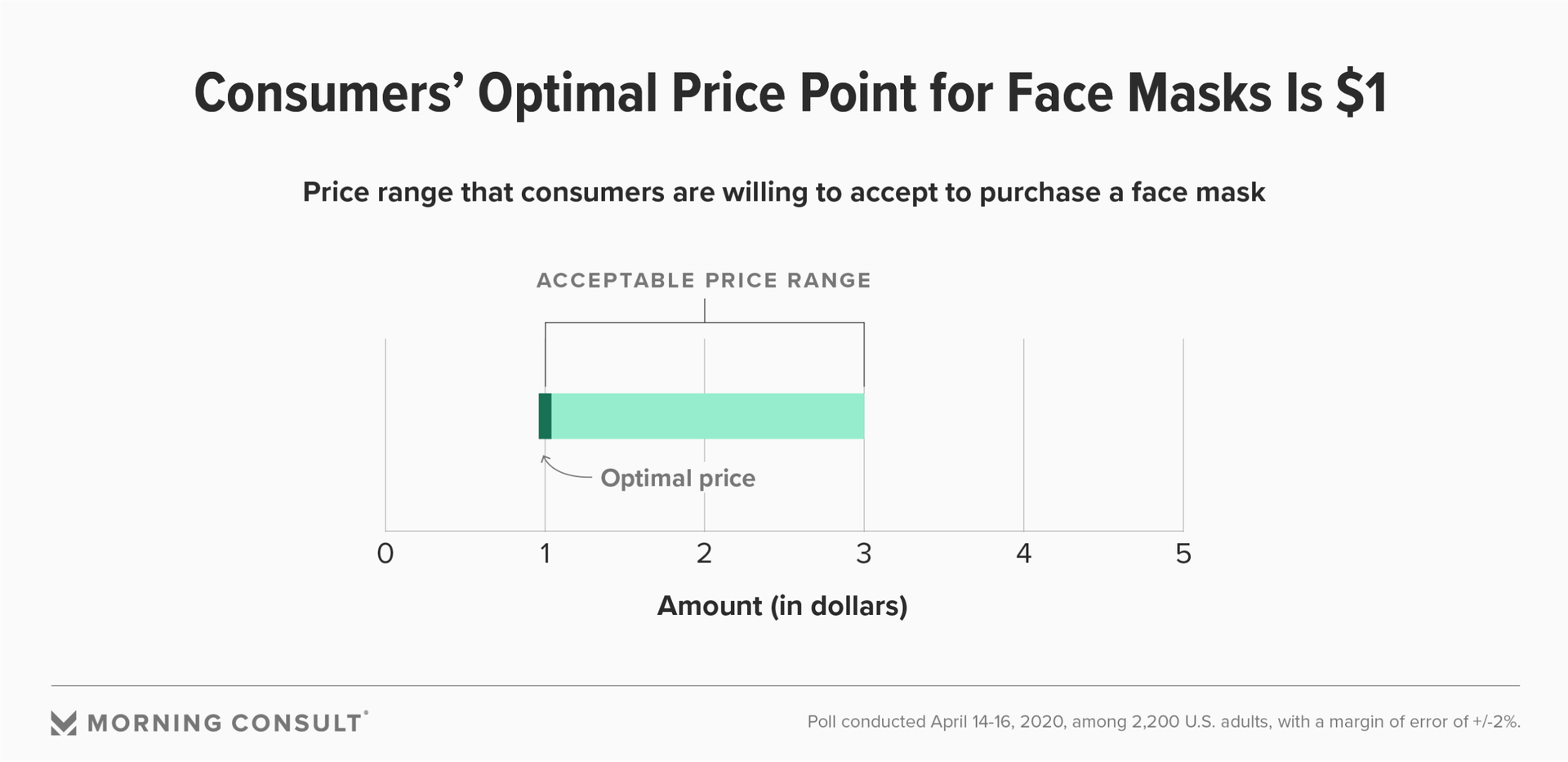Face Masks in High Demand, but Consumers Say They Want to Pay Only $1 for One

Regularly wearing face masks could soon become part of the country’s new reality during the pandemic, as social norms shift to help prevent the spread of the coronavirus, but consumers are not willing to spend much on the product. While prices for face masks vary depending on the seller, new Morning Consult polling found consumers’ ideal price is just $1.
A Morning Consult analysis based on the Van Westendorp model — which finds an optimum price point for goods or services by considering what prices consumers believe are “too expensive” and “too good to be true” — found that consumers would pay $1 to $3 for a face mask, with $1 being the optimal price.

Face masks on platforms such as Amazon.com Inc., along with at local shops such as bodegas in New York, are offering reusable and disposable face masks in value packs or for only a couple of dollars each, but many retailers that have started only recently begun producing reusable masks are charging closer to $10 to $30 a pop.
Face masks have become more popular in recent weeks. Sixty-six percent of U.S. adults said they have worn a mask in public in the past month, according to April 14-16 polling, a 16-point increase from those who said the same just last week. The most recent survey was conducted among 2,200 U.S. adults and holds a margin of error of 2 percentage points.
Beginning Friday, New Yorkers will be required to wear face coverings when out in public and social distancing is not possible, according to an executive order issued by Gov. Andrew Cuomo. The Trump administration and the Centers for Disease Control and Prevention have also issued guidelines this month encouraging people to wear face masks.
Google searches for the term “face masks” also spiked up this month to its highest level since Google began tracking the term in 2004.
Homemade face masks don’t provide the same level of protection as surgical masks or professionally sewn masks, but plenty of people around the country are creating their own protective gear. Websites such as Sewing For Lives have cropped up, providing tips for anyone who wants to make masks at home.
Some companies are struggling to keep up with demand, especially brands that are taking on face mask production while still selling their other products.
Caraa, which typically produces luxury sports bags, added a note to its product description telling customers that its employees are “working around the clock” to fulfill reusable face mask orders, while menswear brand Buck Mason and designer Christine Alcalay both warned of potentially longer-than-usual wait times as they donate masks to essential workers first.
Caraa sells reusable masks in packs of five for $25, Buck Mason’s go for $20 for five, and Christine Alcalay’s masks are $29 for one. Amazon lists a range of reusable and throwaway masks for under $5.
Many more face mask sellers have posted notes on their sites informing shoppers of delays in production or delivery due to high volumes of orders, but one seller sees a limit to the industry.
Brooklyn-based designer Sheena Sood, the founder of ethically produced clothing company Abacaxi, said she started selling face masks with pockets for filters on her website less than three weeks ago for $20, but she raised the price to $30 after contracting a tailor to help with production.
“Right now, everyone needs a mask. There’s a huge demand,” she said, noting that with the increased interests in masks, she’s received several orders for clothing as well. “But at some point, I feel like people will have purchased all the masks that they need.”
Alyssa Meyers previously worked at Morning Consult as a reporter covering brands and marketing.
Related content

As Yoon Visits White House, Public Opinion Headwinds Are Swirling at Home

The Salience of Abortion Rights, Which Helped Democrats Mightily in 2022, Has Started to Fade
